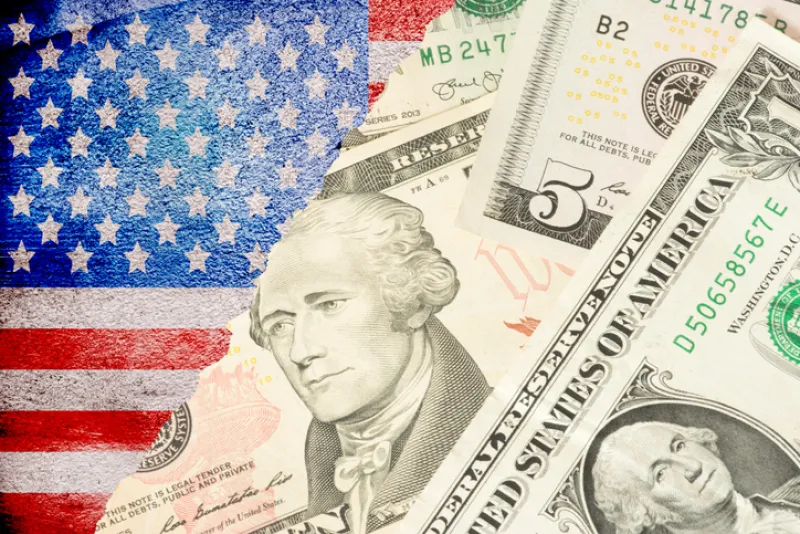Since the Trump White House began implementing its global trade and investment policies, some allocators have begun to consider whether U.S. exceptionalism is in decline — and how that could affect their portfolios. But while these skeptical investors look for alpha opportunities overseas, a contingent of investment chiefs insist that the dominance of U.S. equities is here to stay.
“There’s been a significant amount of ‘end of American exceptionalism’ talk. I don’t buy it,” said Jackson Garton, CIO of Makena Capital Management.
Despite conceding that there are “a lot of opportunities overseas,” Garton believes the dire headlines about the decline of U.S. equity markets don’t “translate into the corporate opportunity here.”
“Corporate fundamentals have been reasonably solid,” the Makena CIO explained. “You’ve had pretty solid earnings coming out of companies on a year-to-date basis. They’ve generally been beating estimates. So, companies are doing pretty well.” (Garton spoke with Institutional Investor in August before the most recent jobs report came out on September 5.)
The conventional wisdom is that, given how the U.S. is treating its trade partners, the world would move away from U.S. stocks and government bonds. But Whittier Trust’s CIO Sandip Bhagat has high conviction that those fears are overblown, noting that there’s just “not much of an alternative to challenge U.S. dominance.”
“I am proud of U.S. exceptionalism and believe it will last for the next two or three decades,” Bhagat told II.
Bhagat argued that the country’s foundational blocks of freedom, liberty, and democracy will remain strong and continue to bolster capitalism, free enterprise, and a risk-taking mindset on both the individual and institutional level.
“This has taken many, many years to build,” Bhagat said. “You don’t gain it overnight and you don’t lose it overnight.”
For Bhagat, there’s no better example of American exceptionalism than in its continued dominance in tech — and AI in particular.
“The tech sector is almost one third of the market value of all companies, and AI is at the forefront,” Bhagat said. “The innovation has come about in technology and AI, and it is just incredible what these companies have done. And I do not see this disappearing anytime soon.”
Garton added that artificial intelligence is driving a lot of investor capital into tech through both private and public markets. (Global investors are set to pump nearly $900 billion into AI infrastructure projects by 2027, most of which is going to large U.S. tech firms.)
This dominance extends beyond equities. With the share of the U.S. dollar at nearly 60 percent of all central bank reserves, the world isn't moving away from the currency. According to Bhagat, it “has safety, quality, liquidity, and depth.” Plus, investors are still buying 10-year treasuries at 4.05 percent.
“There are just no other alternatives,” Bhagat said.
And the U.S. remains resilient for now. Despite falling nearly 20 percent within seven weeks, U.S. equity markets are trending higher: The S&P 500 is up more than 32 percent as of September 12 since hitting its lowest point on April 7.
So, why are U.S. equities so resilient? J.P. Morgan Asset Management’s strategic investment advisory group argues in a white paper that the U.S. will likely maintain its economic power thanks to the dollar’s role as the world’s reserve currency, in addition to boasting the deepest and most liquid capital markets the world has to offer.
JPMAM did note that U.S. exceptionalism could face challenges from non-U.S. developed markets like Europe, which offers a level of scale, sector diversity, and sophistication that could rival the U.S.
However, Bhagat finds this unlikely, noting that the Euro is tied to a coalition of different countries, none of which are driving innovation in tech. “If you wanted a safe haven for your returns," he said, "would you rather have them in dollars or euros?”







